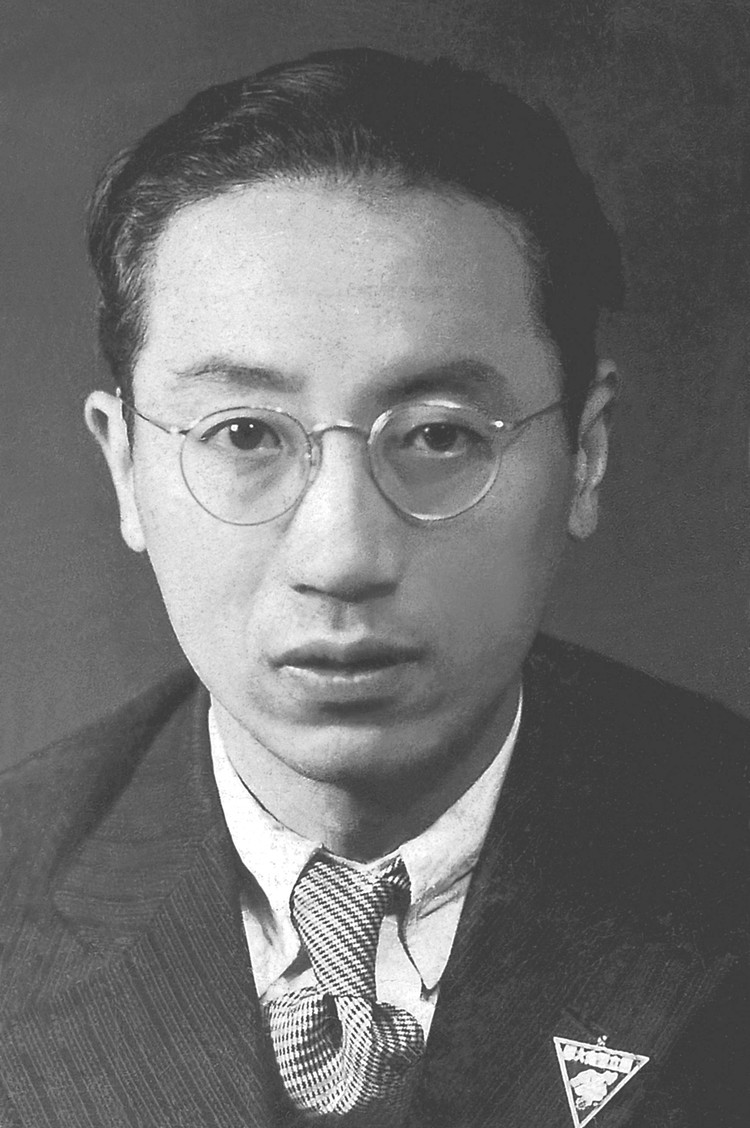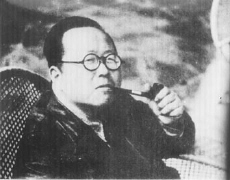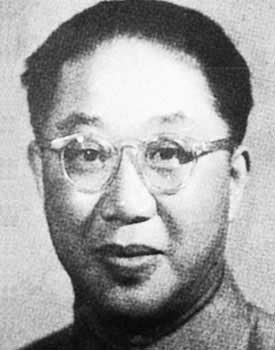|
China Democratic League
The China Democratic League (CDL) is one of the eight legally recognized minor political parties in the People's Republic of China under the Chinese Communist Party's United Front. The CDL was originally founded in 1941 as an umbrella coalition group of the Chinese National Socialist Party, the Chinese Youth Party and the Chinese Peasants' and Workers' Democratic Party to fight the Imperial Japanese Army while providing for a "Third Way". By 2020, the party had grown to 330,600 members, making it the largest legally recognized minor political party in the People's Republic of China. Of all such parties it also has the most seats in the Standing Committee of the National People's Congress at 9 seats. However, it has 58 seats in the National People's Congress, 6 less than the Jiusan Society. History The China Democratic Political League was established in Chongqing on 19 March 1941, and changed its name to the China Democratic League in September 1944. At its formation, it was ... [...More Info...] [...Related Items...] OR: [Wikipedia] [Google] [Baidu] |
Ding Zhongli
Ding Zhongli (; born 14 January 1957) is a Chinese geologist and politician. He is a Vice Chairman of the Standing Committee of the National People's Congress and chairman of the China Democratic League. Biography Ding was born in Shengzhou, Zhejiang Province, on 14 January 1957. In 1982, he earned his B.Sc of geochemistry from Zhejiang University. In 1988, he obtained PhD from the ''Institute of Geology and Geophysics, Chinese Academy of Science''. Ding's research mainly focuses on the Neogene eolian sediments and ancient climate. He is the current Director-general of the ''Institute of Geology and Geophysics, Chinese Academy of Science''. He's also the vice-president of the ''Chinese Society for Mineralogy, Petrology and Geochemistry''. In December 2005, Ding was elected as an academician of the Chinese Academy of Science. In January 2008, he was pointed as the vice-president of the Chinese Academy of Sciences. In December 2017, Ding was elected as the chairperson of th ... [...More Info...] [...Related Items...] OR: [Wikipedia] [Google] [Baidu] |
Chinese Youth Party
The Young China Party (YCP), also known as the Chinese Youth Party (CYP), is a minor political party in Taiwan (Republic of China). It was one of the three legal political parties in Taiwan during the martial law period from 1949 to 1987, the other two being the Kuomintang and the China Democratic Socialist Party. The YCP was an important political party during the early history of the Republic of China, when its government was based on the mainland. History The Young China Party was founded by a group of Chinese students in Paris, France on 2 December 1923. Their name was inspired by the Young Turks. Given China's weakened condition in the early 1920s, the YCP's primary platform was to advocate the elimination of China's warlords and the establishment of a strong central government. It also promoted a nationalist agenda which focused on the abolition of the special privileges and extraterritoriality which foreign powers had obtained in China during the final years of the ... [...More Info...] [...Related Items...] OR: [Wikipedia] [Google] [Baidu] |
Fei Xiaotong
Fei Xiaotong or Fei Hsiao-tung (November 2, 1910 – April 24, 2005) was a Chinese anthropologist and sociologist. He was a pioneering researcher and professor of sociology and anthropology; he was also noted for his studies in the study of China's ethnic groups as well as a social activist. Starting in the late 1930s, he and his colleagues established Chinese sociology and his works were instrumental in laying a foundation for the development of sociological and anthropological studies in China, as well as in introducing social and cultural phenomena of China to the international community. His last post before his death in 2005 was as Professor of Sociology at Peking University. Early years Fei Xiaotong was born in Wujiang County of Jiangsu province in China on November 2, 1910. His world was one plagued with political corruption and abject poverty. He grew up in a gentry but yet not wealthy family. His father, Fei Pu'an () was educated in the Chinese classics, earned ... [...More Info...] [...Related Items...] OR: [Wikipedia] [Google] [Baidu] |
Huang Yanpei
Huang Yanpei (; 1 October 1878 – 21 December 1965) was a Chinese educator, writer, and politician. He was a founding pioneer of the China Democratic League. Life Huang was born in Neishidi, Chuansha, Jiangsu (now part of Pudong, Shanghai) during the reign of the Guangxu Emperor in the late Qing dynasty. His mother died when he was 13 and his father died when he was 17, so he lived with his maternal grandfather, who gave him a traditional Chinese education. In his young age, he studied at Dongye School (東野學堂) and read the Four Books and Five Classics. Before he reached adulthood, he worked as an informal teacher in his hometown to support his family. In 1899, he topped the imperial examination in Songjiang Prefecture and obtained the position of a ''xiucai'' (秀才). Huang's uncle sponsored him to read Western studies. In 1901, he was enrolled in Nanyang Public School (now Jiao Tong University), where he met Cai Yuanpei, who was teaching the Chinese language there. A y ... [...More Info...] [...Related Items...] OR: [Wikipedia] [Google] [Baidu] |
Pan Guangdan
Pan Guangdan (; 1898–1967) known in English as Quentin Pan, was a Chinese sociologist, eugenicist, and writer. He was one of the most distinguished sociologists and eugenicists of China. Educated at Tsinghua University on a Boxer Indemnity Scholarship, Dartmouth College and Columbia University, where he was trained by Charles B. Davenport, Pan was also a renowned expert on education. His wide research scope included eugenics, education policy, matrimony policy, familial problems, prostitute policy, and intellectual distributions. Pan's wide-ranging intellect led to his active participation in the Crescent Moon Society. Pan's most famous student was Fei Xiaotong, the "father of Chinese anthropology." Career Pan joined the China Democratic Groups League (later China Democratic League) in 1941, and was a standing committee member of the central committee of the League. During the Anti-Rightist Movement, he was determined to be a "rightist." Pan was persecuted in Cultural Revolut ... [...More Info...] [...Related Items...] OR: [Wikipedia] [Google] [Baidu] |
Luo Longji
Luo Longji (; July 30, 1898 – December 7, 1965) was a Chinese politician and famous intellectual. Luo has been called the "China's number two rightist". He and Hu Shih collaborated to research and promote human rights in China, which made them one of the earliest prolific liberals in the People's Republic of China. Because he advocated for setting committees to rehabilitate the wronged people in previous Communist repressions, he was attacked by Wu Han during the Anti-Rightist Campaign The Anti-Rightist Campaign () in the People's Republic of China, which lasted from 1957 to roughly 1959, was a political campaign to purge alleged " Rightists" within the Chinese Communist Party (CCP) and the country as a whole. The campaign was ... and persecuted accordingly. References Luo Longji {{DEFAULTSORT:Longji, Luo 1898 births 1965 deaths Academic staff of the National Southwestern Associated University Victims of the Anti-Rightist Campaign Chinese government officials Peopl ... [...More Info...] [...Related Items...] OR: [Wikipedia] [Google] [Baidu] |
Zhang Junmai
Carsun Chang (Shanghainese for (; 1886–1969), also known as Chang Chun-mai (), was a prominent Chinese philosopher, public intellectual and political figure. Carsun Chang was a social democratic politician. Biography A pioneering theorist of human rights in the Chinese context, Chang established his own small "Third Force" democratic party during the Nationalist era. Chang supported German-style social democracy while opposing capitalism, communism, and guild socialism. He supported socialization of major industries such as railroads and mines to be run by a combination of government officials, technicians, and consumers. The development of a mixed economy in China, like that advocated by the Social Democratic Party of Germany under Philipp Scheidemann. Equipped with the traditional Confucian degree of ''xiucai'' or "accomplished scholar", Chang went on to study at Waseda University in Japan where he came under the influence of Liang Qichao's theory of constitutional monarchy ... [...More Info...] [...Related Items...] OR: [Wikipedia] [Google] [Baidu] |
Zhang Dongsun
Zhang Dongsun (; 1886–1973), also known as Chang Tung-sheng, was a Chinese philosopher, public intellectual and political figure. He was a professor of Philosophy and Sinology at Yenching University and Tsinghua University. Biography Zhang Dongsun was born in 1886 in Hangzhou, Zhejiang, China. Travelling to Japan as an overseas student in his youth, Zhang studied the philosophy of Immanuel Kant, and attempted to reinterpret Confucianism along Kantian lines. He took part in famous debates about the relative merits of " science and metaphysics," allying himself with the then-fashionable metaphysics of Henri Bergson. He was equally well-known, as an exponent of the philosophy of Bertrand Russell, whom he accompanied on a tour of China in 1920. A prominent exponent of Chinese socialistic liberalism, Zhang became a powerful influence in the China National Socialist Party in its original incarnation as a non-Communist "third force" grouping opposed to the dictatorship of the Guominda ... [...More Info...] [...Related Items...] OR: [Wikipedia] [Google] [Baidu] |
Kuomintang
The Kuomintang (KMT), also referred to as the Guomindang (GMD), the Nationalist Party of China (NPC) or the Chinese Nationalist Party (CNP), is a major political party in the Republic of China, initially on the Chinese mainland and in Taiwan after 1949. It was the sole party in China during the Republican Era from 1928 to 1949, when most of the Chinese mainland was under its control. The party retreated from the mainland to Taiwan on 7 December 1949, following its defeat in the Chinese Civil War. Chiang Kai-shek declared martial law and retained its authoritarian rule over Taiwan under the ''Dang Guo'' system until democratic reforms were enacted in the 1980s and full democratization in the 1990s. In Taiwanese politics, the KMT is the dominant party in the Pan-Blue Coalition and primarily competes with the rival Democratic Progressive Party (DPP). It is currently the largest opposition party in the Legislative Yuan. The current chairman is Eric Chu. The party originate ... [...More Info...] [...Related Items...] OR: [Wikipedia] [Google] [Baidu] |
Second Sino-Japanese War
The Second Sino-Japanese War (1937–1945) or War of Resistance (Chinese term) was a military conflict that was primarily waged between the Republic of China and the Empire of Japan. The war made up the Chinese theater of the wider Pacific Theater of the Second World War. The beginning of the war is conventionally dated to the Marco Polo Bridge Incident on 7 July 1937, when a dispute between Japanese and Chinese troops in Peking escalated into a full-scale invasion. Some Chinese historians believe that the Japanese invasion of Manchuria on 18 September 1931 marks the start of the war. This full-scale war between the Chinese and the Empire of Japan is often regarded as the beginning of World War II in Asia. China fought Japan with aid from Nazi Germany, the Soviet Union, United Kingdom and the United States. After the Japanese attacks on Malaya and Pearl Harbor in 1941, the war merged with other conflicts which are generally categorized under those conflicts of World War II a ... [...More Info...] [...Related Items...] OR: [Wikipedia] [Google] [Baidu] |
Pressure Groups
Advocacy groups, also known as interest groups, special interest groups, lobbying groups or pressure groups use various forms of advocacy in order to influence public opinion and ultimately policy. They play an important role in the development of political and social systems. Motives for action may be based on political, religious, moral, or commercial positions. Groups use varied methods to try to achieve their aims, including lobbying, media campaigns, awareness raising publicity stunts, polls, research, and policy briefings. Some groups are supported or backed by powerful business or political interests and exert considerable influence on the political process, while others have few or no such resources. Some have developed into important social, political institutions or social movements. Some powerful advocacy groups have been accused of manipulating the democratic system for narrow commercial gain and in some instances have been found guilty of corruption, fraud, bri ... [...More Info...] [...Related Items...] OR: [Wikipedia] [Google] [Baidu] |
Democracy In China
The debate over democracy in China has been a major ideological battleground in Chinese politics since the 19th century. China is not a Western-style liberal democracy. The Chinese government and the Chinese Communist Party (CCP) state that China is democratic nonetheless. Many foreign and some domestic observers categorize China as an authoritarian or neoauthoritarian one-party state. Some characterize it as a dictatorship. The Constitution of the People's Republic of China (PRC) states that its form of government is "people's democratic dictatorship". The Constitution also holds that China is a one-party state that is governed by the CCP. This gives the CCP a total monopoly of political power which it frequently exercises. All political opposition is illegal. Currently there are eight political parties in China other than the CCP that are legal, but all have to accept CCP primacy to exist. The CCP says that China is a "socialist democracy", in which the CCP is the central au ... [...More Info...] [...Related Items...] OR: [Wikipedia] [Google] [Baidu] |






